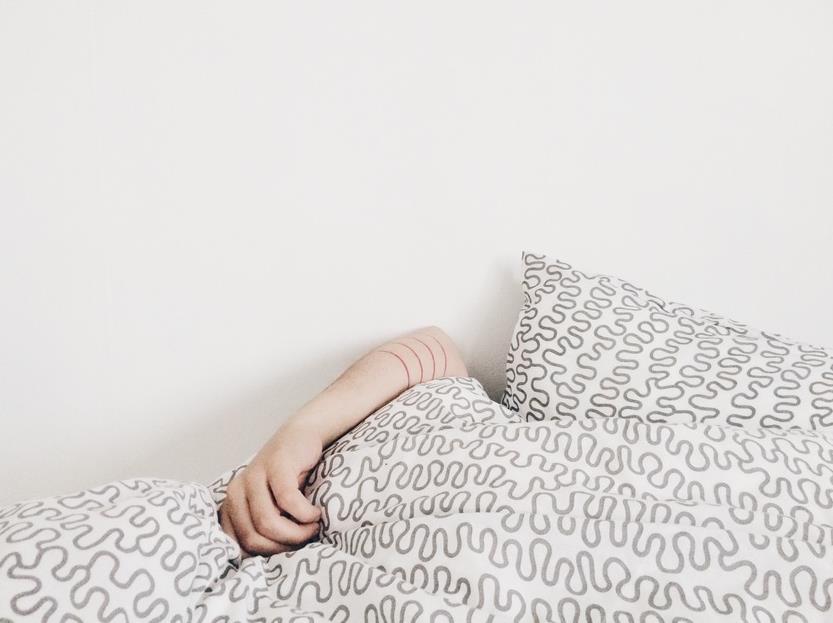Image: pexels.com
Sleep is not a fashionable activity. ‘I’ll have ‘plenty of time to sleep when I’m dead,’ we say as if sleep is a waste of life.
In fact author and entrepreneur Arianna Huffington believes this attitude has become so widespread that it amounts to a global sleep crisis. The Huffington Post founder and prolific author is the kind of success story who makes the rest of us feel as if we need to get up earlier. But in her latest book The Sleep Revolution she turns her back on the belief that achievement comes with exhaustion.
Huffington believes we are suffering from a ‘collective delusion that overwork and burnout are the price we must pay in order to succeed’.
‘Feeling that there aren’t enough hours in the day, we look for something to cut. And sleep is an easy target. In fact, up against this unforgiving definition of success, sleep doesn’t stand a chance.
‘It’s a delusion that affects not only our personal health, but our productivity and decision making. In other words, we may not have as many good ideas as we would have otherwise had, we may not be as able to come up with creative solutions to problems we’re trying to address, or we may be short-tempered or waste a day (or day after day, or year after year) going through the motions,’ writes Huffington.
Those who work in the arts industry are familiar with this negative attitude to sleep. Long hours are often expected and congratulated. We wear our weariness as a sign of how hard we are working or our strong creative output. Limited budgets and small teams often mean individuals are left with an ever-growing to do list while erratic hours play havoc with the concept of a sleep cycle.
Read: Why we are burning out in the artsBut some artists have learned that giving in to the basic need to sleep makes them more productive, not to mention happier and healthier.
The right amount of sleep for you
Margaret Thatcher famously slept for only four hours a night – but don’t treat this as a model. While some people’s natural biorhythms afford them less sleep, it’s important to figure out what works best for you.
Artist Spencer Harrison has felt a certain pressure from witnessing other creatives pull all-nighters in their studio.
‘I felt that I wasn’t working hard enough, but I realised I need to be on a regular sleep schedule otherwise I get out of whack.’
After experimenting with different sleeping patterns and attempting to be an early bird, Harrison’s advice is to find your natural rhythm and then ‘not feel guilty about whatever that is.’
‘I think it is good for people to experiment and find out if they have a different sleep pattern that works better for them,’ he concluded.
Graphic recorder, illustrator, performer and creative all-rounder Sarah Firth has had to redefine her relationship with sleep upon realising she needs a lot of it.
‘It’s a good thing to talk about because it has taken me a very long time to realise I’m actually a person who needs a lot of sleep.’
Working in both the arts and corporate sector as a creative gun for hire has exposed Firth to the unrealistic demands on energy, efficiency and performance.
‘It absolutely kills me…as a creative person I feel like I need to be much more switched on and attentive and sensitive. In order to be comfortable and maintain that level of attention I need to be refreshed.
Firth’s ideal amount of sleep is nine hours. ‘When I don’t get that, I actually carry a lot of stress in my body and I function quite poorly.’
But what about those who can’t afford the supposed ‘luxury’ of nine hours sleep, be it because they are working multiple jobs, balancing parenting, have clashing schedules or evening performances?
While it may be difficult to secure the ‘right’ amount of sleep, it’s important to debunk the romanticism about the lack of sleep.
Artist and parent Lily Mae Martin says she is ‘not a good sleeper’ by any means, but has seen the impact of sacrificing it.
‘When I was younger I think I sort of romanticised the notion of being an insomniac. I always worked at night but my child had sleeping issues up until the age of about four and I was beside myself with sleep deprivation. My whole life revolved around trying to get nap times during the day and I would take on freelance work and had to sacrifice sleep. I just didn’t cope very well in any capacity and didn’t do anything very well.’
When sleep is prioritised, multiple areas of life can be improved. ‘My art, my child and myself are all happier with a life with good sleep,’ said Martin.
Firth agreed. ‘I realised that if I took my sleep more seriously and invested in taking measures to sleep well – going to bed an hour before I need to sleep and not looking at technology and instead doing calming things, my level of life enjoyment and creative ability is so much higher.’
For Regional Arts Victoria CEO Esther Anatolitis, sleep is extremely important. ‘Given how faulty my brain is, I prize sleep as a beautiful and important highlight of my day, and have worked very hard on creating the conditions where I can sleep well,’ she said.
Her advice is to view sleep as a vital part of your daily practice. ‘Often when we’re not sleeping well, we feel like we need to change something really big in our lives, when really what we need to do is change things that are very small,’ she said.
After all, sleep is tied into so many parts of our daily lives. ‘All the little things about our day make all the tremendous things possible. Enjoying daily exercise, taking good time for our meals (never at the desk! never ever!), eating well before or after an evening show, writing down your thoughts on a work or a project or a deadline so that they’re not swimming in your mind, winding down the day with something restful or meditative… None of this on its own will help you sleep well, but together, it’s what makes you, you,’ she said.
Five tips for better sleep habits
1. White noise
To work around natural interruptions, Martin has a white noise app that she plugs in each night. ‘If I am having trouble sleeping I remind myself that relaxing is just as important.’
2. Build a bedtime routine
Huffington recommends setting up a bedtime routine to get your body accustomed to winding down. She starts by leaving devices out of her bedroom, followed by a hot bath with Epsom salts. She then changes into her pyjamas and sometimes drinks chamomile tea to help her sleep before writing down the things that she is grateful for that day.
Harrison adds that it can be helpful to set alarms for your bedtime as well as your waking time.
3. Switch off
Although advances in technology have allowed us to learn more about the mechanics of sleep, as Huffington explains, technology is also responsible for interrupting our sleep – for many of us our phones are the last thing we see at night and the first thing we check in the morning.
Turn your phone onto sleep mode an hour before bed, or even leave it out of the bedroom to be completely temptation free. In the morning, try to be phone or email free for the first hour of the day.
4. Take a nap
Artist Ken Done will sleep for half an hour most afternoons. ‘It’s very important – unless you are having a passionate love affair, I think after lunch you should have a little rest.’
5. Manage your workload
Getting good sleep has a lot to do with time management and planning. ‘I don’t take on work that is going to bulldoze my sleep,’ explained Martin. ‘Under no circumstances I will take on a job with an extreme deadline because I’ve worked out that no job is worth that amount of stress.’





